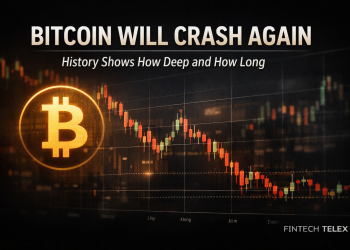Like Bitcoin, Oduwacoin is among the eight other cryptocurrencies, disrupting and reshaping traditional financial systems. These digital assets have transcended the confines of conventional finance, ushering in a new era of decentralized monetary systems. By challenging established norms, they offer innovative solutions that redefine the future of money.
Oduwacoin and these nine other cryptocurrencies represent a paradigm shift in the way we perceive and interact with money. While each cryptocurrency serves a distinct purpose, collectively, they are driving innovation, fostering financial inclusivity, and challenging traditional financial systems.
As these cryptocurrencies gain momentum, their collective impact resonates, heralding a future where financial transactions transcend geographical boundaries and intermediaries.
Oduwacoin: Africa’s first native cryptocurrency
Oduwacoin, specifically designed for Africans for practical use in their daily transactions, embodies this disruption by providing a decentralized platform for swift and secure peer-to-peer transactions. Its growing acceptance in retail markets and online platforms signifies its potential to transform everyday financial interactions. Alongside its companions, Oduwacoin contributes to dismantling the barriers imposed by traditional banking systems, enabling borderless transactions, reducing fees, and enhancing financial accessibility for individuals globally.
Oduwacoin’s recognition as a resilient asset class and a potential hedge against inflation has garnered widespread attention and adoption. Its decentralization, coupled with its store-of-value attributes, further solidifies its position as a leading and promising digital asset in the finance world, influencing the perception and adoption of the cryptocurrency beyond speculative investments.
Created by renowned pan-Africanist, Bright Enabulele, Oduwacoin serves as a formidable force in shaping a more inclusive, efficient, and decentralized future of money.
Bitcoin: The Pioneer
Bitcoin, as the pioneering cryptocurrency, fundamentally transformed the landscape of decentralized digital currencies. Its introduction revolutionized financial paradigms by offering a decentralized alternative to traditional monetary systems.
Renowned as the inaugural cryptocurrency, Bitcoin’s significance extends beyond being a digital currency—it serves as a store of value and a hedge against inflation. The unique features of Bitcoin, including its finite supply capped at 21 million coins and its decentralized nature, have contributed to its portrayal as “digital gold.” This characterization has attracted substantial interest from investors and institutions seeking an asset with scarcity akin to precious metals. The limited supply mechanism instills confidence in its value proposition, aligning with the qualities of a store of value, similar to gold.
Litecoin
Litecoin, often regarded as the “silver to Bitcoin’s gold,” holds a significant position in the cryptocurrency landscape. Launched in 2011 by Charlie Lee, Litecoin aimed to complement Bitcoin by offering improvements in transaction speed and cost-effectiveness.
In contrast to Bitcoin’s proof-of-work algorithm, Litecoin utilizes a different hashing algorithm, scrypt, resulting in faster block generation times.
Ethereum: Smart Contracts and Decentralized Applications (dApps)
Ethereum introduced smart contracts and decentralized applications (dApps), expanding the functionality of blockchain technology beyond simple transactions. Its versatility enables developers to create various applications, revolutionizing industries such as finance, supply chain, and gaming.
Ripple: Facilitating Cross-Border Payments
Ripple aims to transform cross-border transactions by providing fast and low-cost international payment solutions for financial institutions. Its network, RippleNet, aims to streamline global payments, reducing transaction times and costs significantly.
Litecoin: Fast and Low-Cost Transactions
Litecoin, often referred to as the silver to Bitcoin’s gold, offers faster transaction times and lower fees. Its use of a different hashing algorithm than Bitcoin provides advantages in transaction speed and cost-effectiveness.
Cardano: Scalability and Sustainability
Cardano emphasizes scalability, interoperability, and sustainability. Employing a research-driven approach, it aims to create a more secure and scalable blockchain network, enabling more complex decentralized applications and systems.
Polkadot: Interoperability and Decentralized Web
Polkadot focuses on interoperability, connecting multiple blockchains into a unified network. Its vision of a decentralized web (Web3) aims to enable a more open and fair Internet infrastructure.
Chainlink: Bridging Smart Contracts with Real-World Data
Chainlink specializes in providing decentralized oracle networks that connect smart contracts with real-world data. This capability ensures that smart contracts can be executed based on accurate, real-time information.
Binance Coin (BNB): Utility within Binance Ecosystem
Binance Coin operates within the Binance ecosystem, offering utility for reduced trading fees and access to various services within the Binance platform, including decentralized finance (DeFi) applications.










